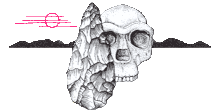Administration | Research Scientists |
Graduate Student Associates |
Research Staff | Research Affiliates & Postdoctoral Fellow Emeriti
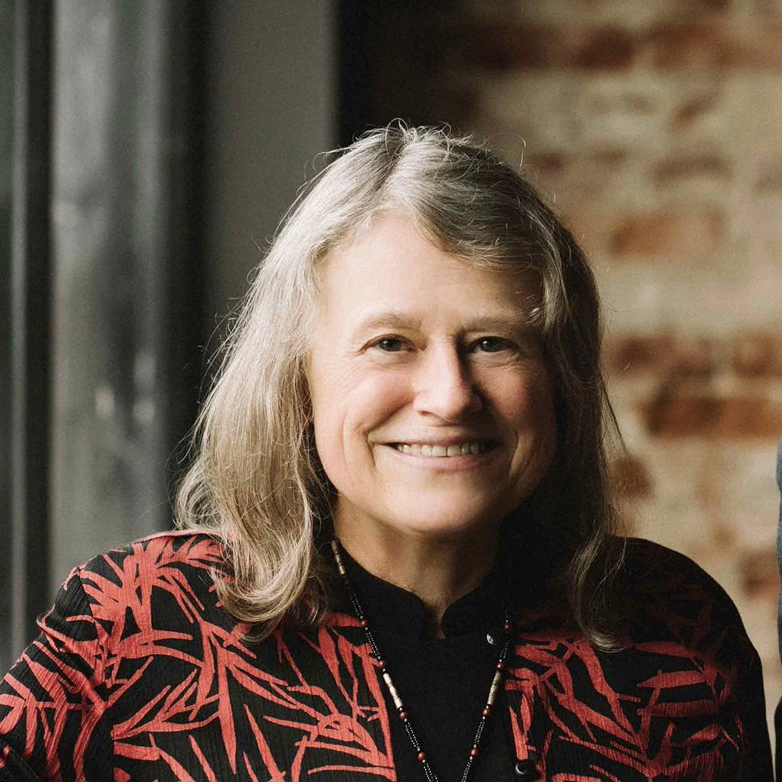 Kathy Schick, co-Director (C.V., Staff Profile)
Kathy Schick, co-Director (C.V., Staff Profile)
Kathy received her Ph.D. in 1984 from The University of California at Berkeley. Her interests in Old World prehistory, palaeoanthropology, archaeological site formation, zooarchaeology, lithic technology, and primate studies have led her to conduct fieldwork in Africa, Asia and Europe, as well as laboratory research in the United States. She was elected as a Fellow of the American Association for the Advancement of Science in 2004, and received the Distinguished Faculty Research Award from Indiana University in 1997.
 Nicholas Toth, co-Director (C.V., Staff Profile)
Nicholas Toth, co-Director (C.V., Staff Profile)
Nick received his Ph.D. in 1982 from The University of California at Berkeley. His research interests include African prehistory, palaeolithic studies, the evolution of human intelligence, lithic technology, experimental archaeology, microscopic approaches to archaeology, zooarchaeology, ethnoarchaeology, and primate studies. He is currently involved in experimental investigations of stone tool-making and tool-using behaviors of modern African apes and of the manufacture and use of early Palaeolithic tools. He was elected as a Fellow of the American Association for the Advancement of Science in 2004.
 Reina Wong, Chief of staff
Reina Wong, Chief of staff
Reina received a B.A. in Anthropology at University of California, Berkeley. She then earned her teaching credentials in the graduate program, and has taught public school students in grades K-8 in Pennsylvania, Virginia, and Indiana. She joined the Stone Age Institute in 2010, and has been involved with the Institute's education, outreach, and grant projects.
 John Baker,
John Baker,
Groundskeeper
Research Staff
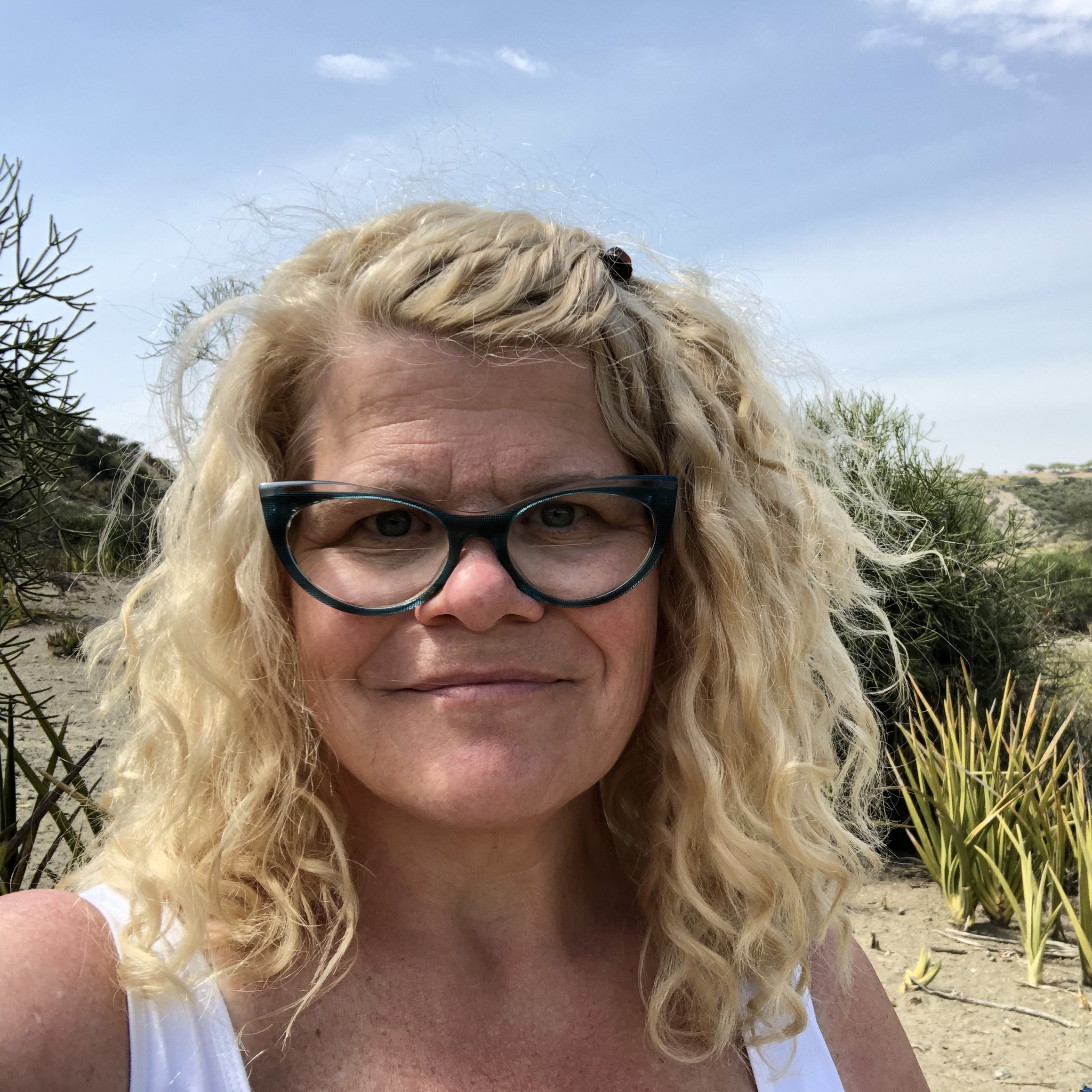 Jodi Pope
Jodi Pope
Jodi received a B.A. in Anthropology and Spanish from Indiana University in 1994 and went on to pursue an M.A. in Anthropology at Southern Illinois University. Her research interests have included human evolution, the anatomy and physiology of modern humans, experimental archaeology, and early ceramic production. Jodi has worked as a research assistant in archaeology and zooarchaeology for many years, was an adjunct professor of Mathematics and Anatomy & Physiology while raising her three children, and is a licensed Registered Nurse. In 2016 she joined the Institute staff as a research assistant working with print and web research resources, field project equipment management, operating the Stone Age Institute's Kaman Laboratory at Olduvai Gorge, and functions as the camp nurse during the field season.
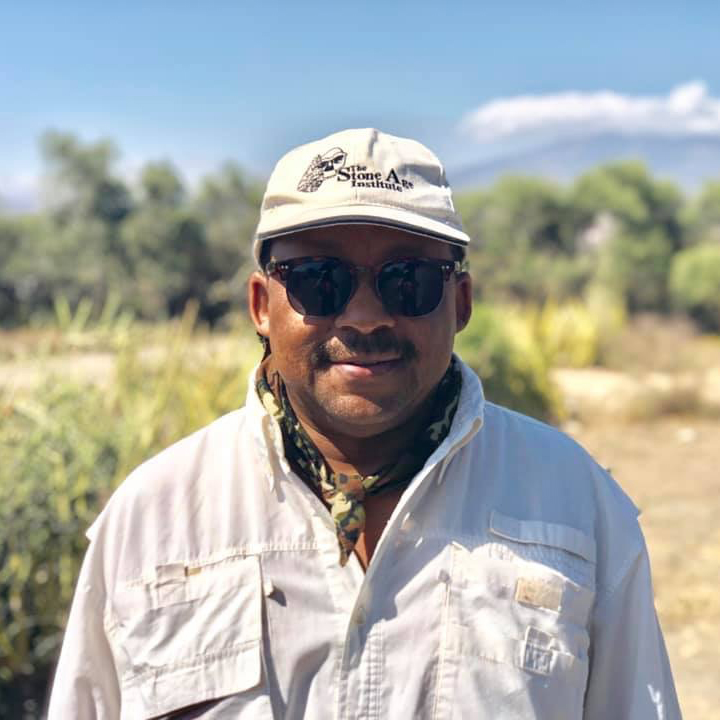 Jackson Njau (C.V., Staff Profile)
Jackson Njau (C.V., Staff Profile)
Jackson, originally from Tanzania, received his Ph.D. from Rutgers University. He is currently Principal Curator at the Museum of National Natural History, Arusha, Tanzania. He joined the Indiana University Department of Geology and the Stone Age Institute in 2011. His research interests include evolution of human behavior, hominid paleoecology, landscape archaeology, animal behavior, wildlife ecology, and research and conservation of museum collections.
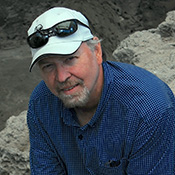 Kevin Hunt (C.V.)
Kevin Hunt (C.V.)
Kevin D. Hunt was educated at the University of Tennessee (B.A., 1980), the University of Michigan (M.A., 1982; PhD, 1989) and Harvard University (Postdoctoral Fellowship, 1989-1991). His principal research interests are ape and human functional morphology, the evolution of human bipedalism, australopith and ape ecology and the evolution of the hominin face. He began his research career studying chimpanzee and baboon locomotion and posture at two sites in Tanzania, Gombe and Mahale, in the late 80s. In the early 90s he collaborated with Richard W. Wrangham in studying chimpanzee, mangabey, redtail monkey and blue monkey feeding behavior at the Kibale Forest, in Uganda. He has directed a study of the ecology and behavior of dry-habitat chimpanzees at the Toro-Semliki Wildlife Reserve, Uganda since 1996. He lives in Bloomington, IN with his wife Marion Gewartowski Hunt; they have three children, Alison, Daniel and David. In his spare time he enjoys hiking, cycling and tennis.
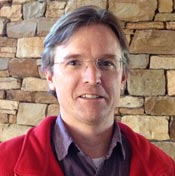 P. Thomas Schoenemann (C.V.)
P. Thomas Schoenemann (C.V.)
Tom received his Ph.D. in Anthropology from the University of California at Berkeley. He is currently Director of the Human Brain Evolution Laboratory, and co-Director of the Open Resource Scan Archive. He joined the Indiana University Anthropology faculty and the Stone Age Institute in 2009. His research interests focus on the evolution of primate and hominin brains, functional morphology of the brain, mathematical image analysis, human variation, and the evolution of human cognition and language.
Administration | Research Scientists | Graduate Student Associates | Research Staff | Research Affiliates & Postdoctoral Fellow Emeriti
 Zara Anwarzai
Zara Anwarzai
Zara received her B.A. in Cross-Cultural Relations (Anthropology) and Philosophical Studies from Bard College at Simon’s Rock in 2015. She then received a Fulbright award to teach and research at the University of Luxembourg. Zara is currently pursuing a dual Ph.D. in Cognitive Science and Philosophy. Her main research interests include embodied cognition, language, action theory, and how the evolution of technology shaped the sort of intentionality and consciousness that are unique to human thinking.
 Chloe Daniel
Chloe Daniel
Chloe Daniel received a B.S. in Anthropology and a B.A. in Psychology from the University of Iowa in 2016. She is currently pursuing a dual Ph.D. in Cognitive Science and Anthropology at Indiana University. Her research interests include the evolution of language and cognition, lithic analysis, experimental archaeology, fire use in the hominin lineage, and primate studies.
 Tyler Nighswander
Tyler Nighswander
Tyler received MA degrees in Islamic studies and the history and philosophy of science and medicine from the University of Arizona and Indiana University respectively. He is currently pursuing a dual Ph.D. in bioanthropology and Middle Eastern languages and cultures. His research interests lie in the history and philosophy of biology, science-religion, evolutionary theory/medicine, primate behavioral ecology, GIS/GPS, endocrinology, and medical primatology. His dissertation research focuses on the effects of urbanization and food waste on hamadryas baboon behavior and reproduction in the Middle East and East Africa. Tyler draws on hamadryas baboon behavioral ecology phenomena to model the effects a higher nutritious diet had on the social and mating structure of early hominins, particularly Homo erectus.
 Danielle Peltier
Danielle Peltier
Danielle received her B.S. in Geology in 2018 from New Mexico State University, and is currently pursuing a Ph.D. in Geological Sciences with a minor in Ecology and Evolutionary Biology from Indiana University. Her interests sit within the junction of geology, anatomy, and anthropology and she uses all three to research changes in hominin morphology/diet and the outside forces that cause those changes. Her Ph.D. research is focused on linking the tectonic, paleoclimate, and paleoecological changes happening in East Africa to better understand hominin migration. She is also currently working on anatomy and morphology of various primates, focusing on differences in ontogeny.
 Lana Ruck
Lana Ruck
Lana received her M.A. in Anthropology in 2014 from Florida Atlantic University, and is currently pursuing a dual Ph.D. in Cognitive Science and Anthropology at Indiana University. She is interested in the parallels between stone tool making and language in the brain, and is focusing particularly on how handedness and language lateralization may have co-evolved. Lana is also broadly interested in archaeological methods, and hopes to develop additional approaches for assessing hominid handedness in archaeological materials.
Research Affiliates & Postdoctoral Fellow Emeriti
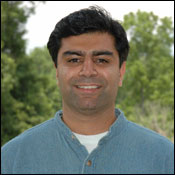 Parth Chauhan
Parth Chauhan
Parth worked as a Postdoctoral Research Fellow at the Stone Age Institute for three years and then was a Research Associate of the Institute. Parth received his Ph.D. in 2005 from the University of Sheffield (U.K.) and his M.A. from Deccan College Post-graduate & Research Institute (India). His area of specialization is the paleoanthropology of the Indian subcontinent. He conducted archaeological research in India on a Fulbright Research Fellowship.
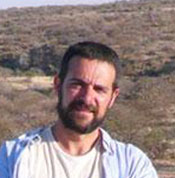 Fernando Diez-Martin
Fernando Diez-Martin
Fernando worked with us as a Stone Age Institute Postdoctoral Research Fellow for two years. He now teaches prehistory at the University of Valladolid in Spain. He has done Palaeolithic Research in Spain and Tanzania.
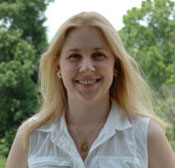 Leslie Harlacker
Leslie Harlacker
Leslie was one of our Indiana University graduate students and then a Research Fellow at the Stone Age Institute. Leslie has been conducting a comprehensive study comparing the biomechanical patterns of tool-making among humans and apes. She is currently an Adjunct Assistant Professor of Anthropology at James Madison University, Virginia.
 Blaire Hensley-Marschand
Blaire Hensley-Marschand
Blaire received her B.A. in Anthropology in 2006 from Indiana University. Her major research interests include zooarchaeology, taphonomy, primate behavior, experimental archaeology, and early hunting and scavenging. She has participated in archaeological fieldwork at Pinnacle Point, South Africa and in paleontological surveys in Wyoming’s Big Horn Basin. Blaire graduated with highest honors and was inducted into Phi Beta Kappa in 2006. She completed a double major Ph.D. in anthropology and geology (paleontology) from Indiana University in 2017.
 Michael Pante
Michael Pante
Michael received his Ph.D. in 2010 from Rutgers University. He is interested in paleoanthropology, taphonomy, and zooarchaeology and his current fieldwork is focused in East Africa studying the evolution of the genus Homo at Olduvai Gorge, Tanzania. When not in the field, Michael is an Associate Professor in the Department of Anthropology at Colorado State University where he is the director of the Zooarchaeology and 3-D imaging and analysis laboratories. His work on campus is focused on developing new quantitative methods for interpreting feeding traces on fossils to better understand the behavior and ecology of our ancestors as they became increasingly carnivorous.
 Travis Pickering
Travis Pickering
Travis was a Stone Age Institute Postdoctoral Research Fellow and then a faculty member at Indiana University and Research Associate of the Stone Age Institute. Travis works on taphonomic studies of fossil animal bones and on hominin functional morphology in his positions as Director of the Swartkrans Paleoanthropology Research Project (South Africa) and project member of the Sterkfontein research team (South Africa). Travis is currently a Stone Age Institute Research Affiliate and a faculty member of the Department of Anthropology at the University of Wisconsin, Madison.
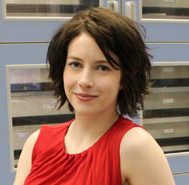 Shelby Putt
Shelby Putt
Shelby received her Ph.D. in Anthropology from the University of Iowa in 2016. She was a Stone Age Institute Postdoctoral Research Fellow from 2016 to 2019. Her research utilizes functional neuroimaging technology, the fossil and archaeological record, and experimental methods to investigate the evolution of primate and hominin brains and behaviors, including cognition, language, tool use and manufacture, social transmission, and learning. She was a 2015-2016 AAUW American Fellow and received the Outstanding Teaching Assistant Award from the University of Iowa in 2015. Shelby is currently a faculty member of the Department of Anthropology at Illinois State University.
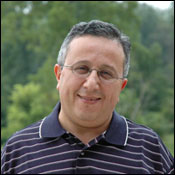 Mohamed Sahnouni
Mohamed Sahnouni
Mohamed was one of our doctoral students and received his Ph.D. from Indiana University in 1996. He was a Postdoctoral Research Fellow at our Indiana University research center, CRAFT, from 1999 to 2000, and then became a Research Scientist at CRAFT and the Stone Age Institute from 2000 until 2010. During his eleven postdoctoral years with us he conducted extensive archaeological research in North Africa at the prehistoric sites of Ain Hanech (ca. 1.7 million years ago) and Ain Boucherit (ca. 2.2 million years ago). He is the Director of Paleoanthropological investigations in the Setifian sedimentary basin of northeastern Algeria and has research interests in Old World Archaeology. He is currently Professor and Coordinator of the Prehistoric Technology Research Program at the Consorcio CENIEH in Burgos, Spain.
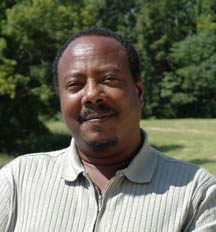 Sileshi Semaw
Sileshi Semaw
Sileshi received his Ph.D. in 1997 from Rutgers University and joined our research center, CRAFT, as a Postdoctoral Research Fellow in that year. He became a Research Scientist with CRAFT and then the Stone Age Institute beginning in 2000. He is director of the Gona Paleoanthropological Research Project in Afar, Ethiopia, and has research interests in Palaeolithic archaeology. Sileshi's work at Gona has documented the oldest known stone tools in the world, at an age of between 2.5 and 2.6 million years. During his thirteen postdoctoral years with us, his field work at Gona uncovered fossils assigned to Ardipithecus ramidus, dated to between 4.5-4.3 million years ago and Ardipithecus kadaba, perhaps 5.5 million years old. In addition, Sileshi's field team discovered two Homo erectus crania and the first female Homo erectus pelvis dated to approximately 1.2 million years ago. His team also discovered a later Homo cranium, perhaps 300,000 years old. He has taken a position with the Consorcio CENIEH in Burgos, Spain starting in late 2011.
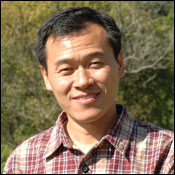 Pei Shuwen
Pei Shuwen
Pei spent a year as a Postdoctoral Research Fellow at the Stone Age Institute in 2009-2010. He is a Research Scientist at the Institute of Vertebrate Paleontology and Paleoanthropology in Beijing, China, and works at the Early Stone Age sites in the Nihewan Basin, Hebei Province, and other archaeological localities in China.
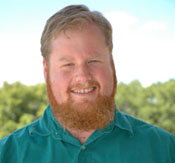 Dietrich Stout
Dietrich Stout
Dietrich was a graduate student at Indiana University, receiving his PhD in 2003. He was a postdoctoral research fellow at the Stone Age Institute for the following year, and then taught at George Washington University and the Institute of Archaeology, University College, London. He is presently on the faculty of the Anthropology Department of Emory University. Dietrich’s research has included studies of brain activity during stone tool manufacture and ethnoarchaeological research in Irian Jaya, New Guinea.
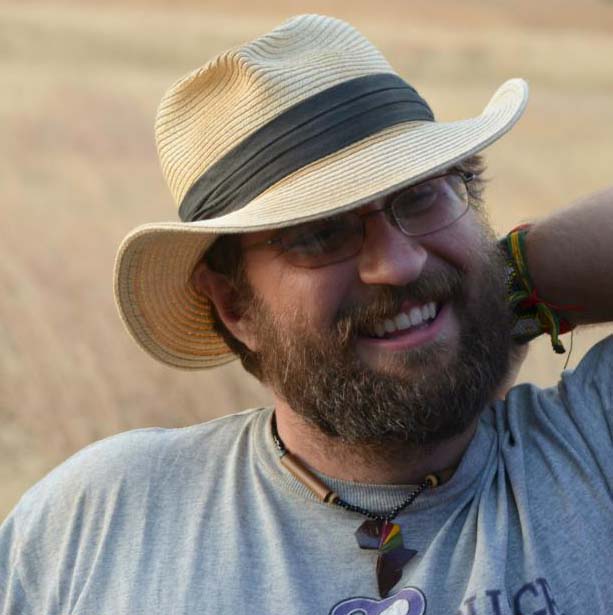 Wesley Vermillion
Wesley Vermillion
Wes worked for The Stone Age Institute while he was an MS student at Indiana University studying vertebrate paleontology in the Department of Geological Sciences. He received his BS in Geology from the University of Illinois at Urbana-Champaign in 2008, graduating with distinction. His research interests include climate change’s effects on vertebrate evolution (especially turtles), chelonian (turtle) evolution, paleobiogeography, wildlife ecology, and paleoecology. Wes has participated in paleontological fieldwork in the American Great Plains and at Olduvai Gorge, Tanzania.
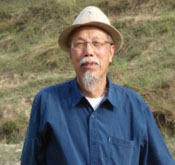 Wei Qi
Wei Qi
Wei is a senior research archaeologist and vertebrate paleontologist at the Institute of Vertebrate Paleontology and Paleoanthropology in Beijing, China. He was a major collaborator with us for many years, starting in 1990, in excavations at very early sites in the Nihewan Basin, including the site of Donggutuo, estimated to be about 1.3 million years old. He still conducts research in his principal study area of the Nihewan Basin, northeastern China.
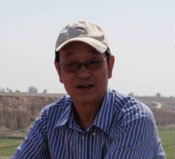 Xie Fei
Xie Fei
Xie is Director of the Institute of Cultural Relics in Hebei Province, China, and has been a research collaborator of ours since 1990. He has excavated at the Early Palaeolithic sites of Feiliang and Cenjiawan in the Nihewan Basin as well as many later sites, including dynastic periods of Chinese history.
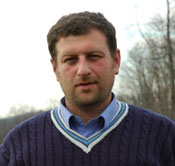 David Zhvania
David Zhvania
David was a predoctoral fellow at the Institute in 2005, working on research into stone tools at the very early site of Dmanisi in the Republic of Georgia, ca. 1.8 million years ago. David currently works at the Georgian National Museum in Tbilisi, Republic of Georgia and continues research at Dmanisi.
Administration | Research Scientists |
Graduate Student Associates |
Research Staff | Research Affiliates & Postdoctoral Fellow Emeriti

